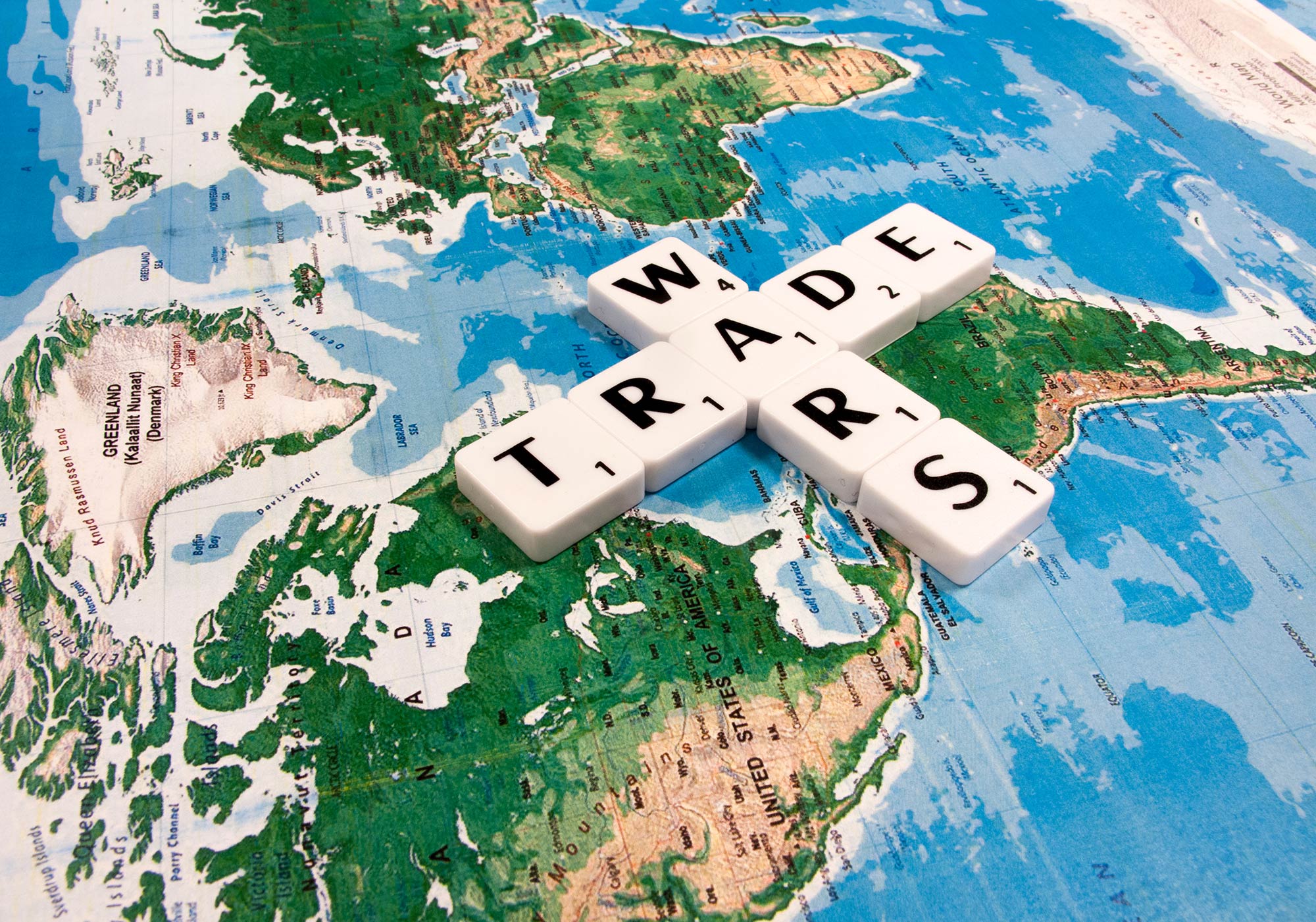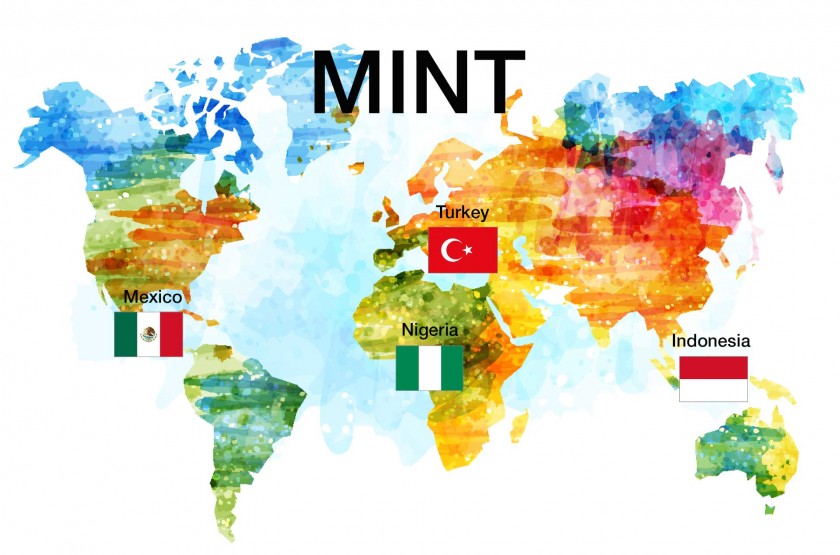Why global trade wars will accelerate the arrival of globalization 2.0, creating tremendous opportunities for the translation industry
- Lizzy Broek
- August 2, 2018
- 64,116 views

Only a few years ago, the word globalization started popping up everywhere. Everyone, expert and amateurs alike, discussed the immense benefits globalization would bring to the world economy. It would connect global markets, creating a perfect economic balance among countries specializing in different economic activities they excel at, as well as streamlining the free flow of information and goods. There were few who didn’t feel globalization would mark the beginning of a new era.
Originally globalization was sparked by a desire to trade internationally. Even before the start of globalization as we know it, many nations desired to become globally active. Think of the Dutch Golden Age, which was not led by a desire for occupation, but by the desire to trade with far-away lands. This entailed new cultures meeting and communicating, which brought forward a wave of demand for interpreters and translators. Interpreters were needed to communicate locally, while translators were needed to translate all the documentation into the proper languages. In the centuries after that, globalization steadily grew more and more relevant, as trading internationally became easier due to new technologies.
However, while globalization brought many benefits to the world such as lifting millions of people out of poverty around the world and creating the world’s second (China) and sixth (India) largest economy, it also brought many problems. For example, globalization caused job losses and depressed wages in more developed countries because manufacturing moved from high-cost Western countries to low-cost countries such as the BRICs. The migration of jobs to lower cost countries forced the workforce to make a choice: accepting a lower wage or finding a different job. This caused huge protests, because wages had been cut by more than 20%. Insecurity and unemployment reigned and employee satisfaction was at an all-time low. The global financial crisis only served to exacerbate the adverse effects of globalization.
As a result, protectionist ideologies began to rise, especially in countries where the average middle class experienced stagnant job growth and wages. People began to long for the good old days when there was less cross-border trade and overseas competition, especially between more developed countries and the rest. The thinking went that if we brought the low-cost manufacturing jobs back home, all the globalization induced issues would go away. A number of countries including the US elected politicians who ran on the platform of protectionism. Ever since Donald Trump became the US president in 2016, protectionism has become the talk of the day. Stemming from the US trade deficit with China and many other trading partners, the US wants to impose tariffs on most imported goods, from steel to washing machines, to cut the trade deficit and to lure companies to manufacture in the US. “America First” was proposed by President Trump as a slogan for turning the focus back inwards.
Suddenly, what was thought to be the greatest thing in the world, globalization now became a term with negative connotations that even academic scholars are reluctant to openly discuss. Indeed, trade wars are now the talk of the day everywhere and import tariffs are being enacted by the US, China, and Europe. However, such euphoria about protectionism will prove to be short-lived simply because today’s world is already too connected to tolerate extended isolationism.
The internet has shattered borders and easy transportation means people are free to travel and live anywhere. It’s now possible to communicate with others in a matter of seconds, regardless of their location. The internet connected the world in ways none could have foreseen. Secondly, a globalized and much larger international economy means better efficiency when it comes to using the earth’s natural resources to produce goods as countries focus on what they do best in an international economic food chain. Thirdly, isolationism will ultimately lead to increased consumer prices as everyday goods are now produced arbitrarily at higher costs rather than most efficiently. Finally, all businesses want a large market to sell their products and services. Isolationist approaches will only impede economic development as businesses invest less to develop new products and services, seeing as the limited potential market doesn’t justify the investment.
In some ways the current trade wars are a good thing for globalization, accelerating the arrival of globalization 2.0, a new global economic order in which countries are more integrated into the global trading system with the elimination of tariffs and entry barriers. It is commonly speculated that after the trade wars have gone on for a while, people will feel the distress of its adverse effects on not only the economy but also on society. Globalization 2.0 will emerge with a vengeance and change everything. Indeed, the current trade wars have already started to shift certain manufacturing from China to some of the lower cost countries such as India, Bangladesh, Vietnam, Philippines, and Mexico, a further expansion of globalization to even more countries.
For the translation industry, globalization 2.0 means tremendous opportunities as international free trade takes on a much higher scale and spreads into a much larger part of the world. Indeed, translation requirements for established languages like French, Spanish, and Japanese will continue to grow, and emerging languages such East Asian and African languages will see a surge in demand. Globalization 2.0 will make it much easier for any company to do business internationally because there will be much less bureaucratic roadblocks and interference. This means the only thing companies need is language services in order to communicate with customers globally.
The translation industry is now a 50-billion-dollar market. With globalization 2.0, this number can easily double or even triple. After all, the world has over seven billion people, speaking some 6,500 languages. There is a long way to go before language services saturate the market.
This is why translation companies like Stepes that invest in next generation language technologies such as machine-human solutions and cloud-based workflows will stand to gain the most. The hyper connected network offers a great tool to organize the large population of bilingual and multilingual talents, similar to what Uber has done for shared ride services. The good news is that over half the world’s population speaks two or more languages. This is a tremendous talent pool and can provide infinite supply of workers to meet the demand of globalization 2.0, creating a new economic demand in and of itself.
Future translation solutions must be able to meet the scale and speed requirements of modern digital translation needs. Specifically, Stepes and a new generation of all-in-one translation companies that deliver language services on-demand and in all business channels such as the web, mobile, social media, and on-site will be hotly sought after as translation services take on more forms and shapes compared to traditional document-only translation services.











